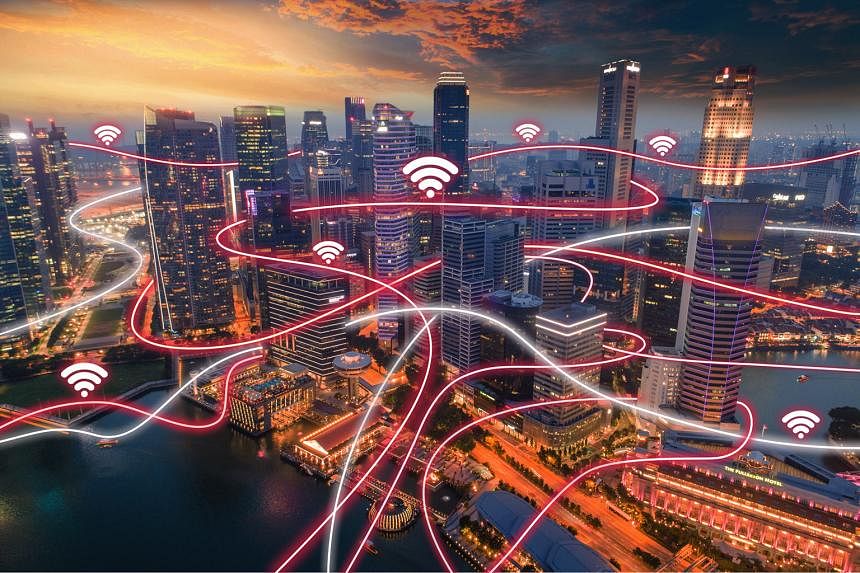The concept of physical cables stitching together cities and countries might seem antiquated, even quaint. It is a legacy that traces its roots back to 1858 when the first transatlantic telegraph cable was laid out, connecting the US and Europe. Then Queen Victoria sent a 98-word telegram to US President James Buchanan via this cable, which took more than 16 hours to transmit.
Today, we have come a long way from the telegrams our grandparents knew. Instead, our devices can share lengthy Telegram and Twitter messages and high-definition videos instantaneously across the globe. This modern communication is facilitated by more than 500 active and planned undersea cables strung across our planet’s oceans and continents.
Singapore plays a vital role in this global network, currently hosting nearly 30 of these cables, linking us to continents as far off as Europe. These cables work relentlessly, transmitting multiple signals across various frequencies concurrently. This method, known as broadband, is akin to a high-speed expressway with numerous lanes. It stands in stark contrast to the era of screechy dial-up Internet, which could be likened to a local road with limited lanes and slow-moving traffic.
Today there are also wireless protocols, such as the prevailing Wi-Fi 6, which act as our digital “sports cars”. They enable us to get on this Internet expressway at higher speeds, making our digital interactions swift and seamless. However, in countries where Internet infrastructure is underdeveloped, the digital “vehicles” face more obstacles and take much longer to navigate, leading to slow or laggy Internet experiences.
How does it happen so easily in Singapore?
Venturing beyond Singapore’s borders, you may find yourself frustrated by a noticeably slower Internet experience. Web pages and applications might take longer to load, and YouTube videos might pause to buffer or play at a lower resolution. This difference is hardly surprising, given that Singapore is regularly named one of the world’s fastest broadband nations, according to the Speedtest Global Index report by Internet metrics company Ookla.
This global recognition is not an overnight success but rather the result of consistent and progressive advancements in the field. When Singtel unveiled commercial dial-up Internet access to Singapore’s consumer market in 1994, many perceived it as a novelty for a niche audience.
Within four years, in 1998, the introduction of broadband Internet promised speeds over 100 times faster than its dial-up predecessor, marking the dawn of a new era. By 2007, with smartphones becoming an everyday essential, the demand for 3G mobile Internet access skyrocketed.

Tyler Fields is your internet guru, delving into the latest trends, developments, and issues shaping the online world. With a focus on internet culture, cybersecurity, and emerging technologies, Tyler keeps readers informed about the dynamic landscape of the internet and its impact on our digital lives.


